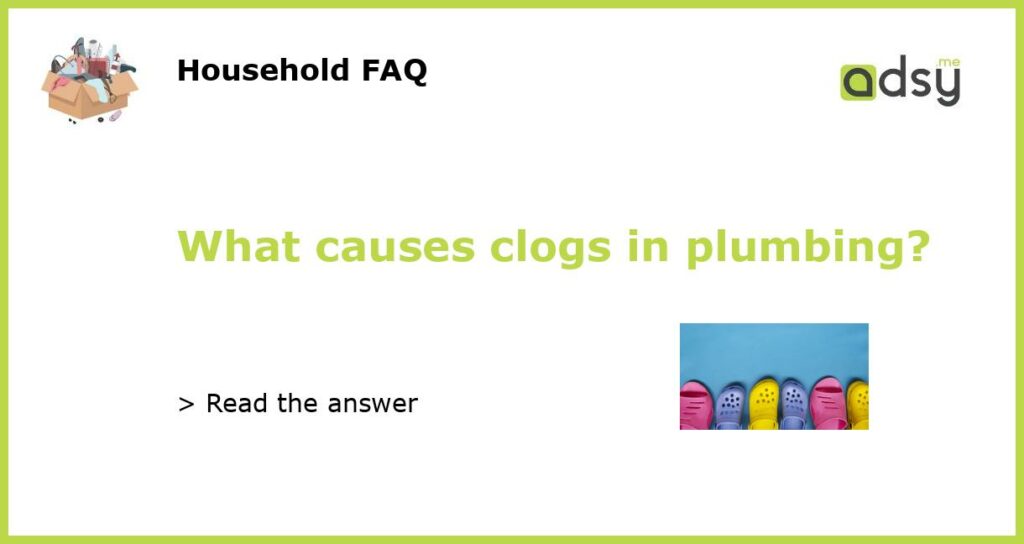Understanding the Causes of Clogs in Plumbing
Clogged drains are a common household problem that can cause frustration and inconvenience. In some cases, a clog can be easily remedied with a plunger or drain cleaner. But what causes clogs in the first place? Understanding the root of the problem can help you prevent future clogs and maintain a healthy plumbing system.
Build-Up of Hair and Soap Scum
One of the most common culprits of clogged drains is a build-up of hair and soap scum. In the bathroom, this can happen in sinks, showers, and tubs. Over time, hair can accumulate and mix with soap residue, forming clumps that block the drain. To prevent this, use a drain strainer to catch hair and avoid pouring oil or grease down the drain.
Food and Cooking Grease
Kitchen sinks and garbage disposals can also be prone to clogs from food particles and cooking grease. Grease can solidify in pipes and cause blockages, while fibrous foods like celery and potato peels can get caught in the disposal’s blades. To prevent clogs, avoid putting large food particles down the disposal and dispose of grease in the trash.
Foreign Objects
Another common cause of clogs is foreign objects. Children’s toys, jewelry, and other small items can accidentally fall down the drain and create a blockage. To prevent this, keep small objects away from sinks and drains, and avoid using the toilet as a garbage can.
Aging Pipes
Older homes may have plumbing systems made of outdated materials that are more prone to clogs. Over time, pipes can corrode or develop cracks, which can allow debris to collect and form blockages. Regular maintenance and inspections can help identify problem areas and prevent clogs from developing.
Tree Roots
In some cases, clogs can be caused by tree roots infiltrating the plumbing system. Roots can grow into pipes and cause blockages or even break the pipes entirely. If you notice recurring clogs or slow draining, it may be a sign of a larger plumbing issue that requires professional attention.






